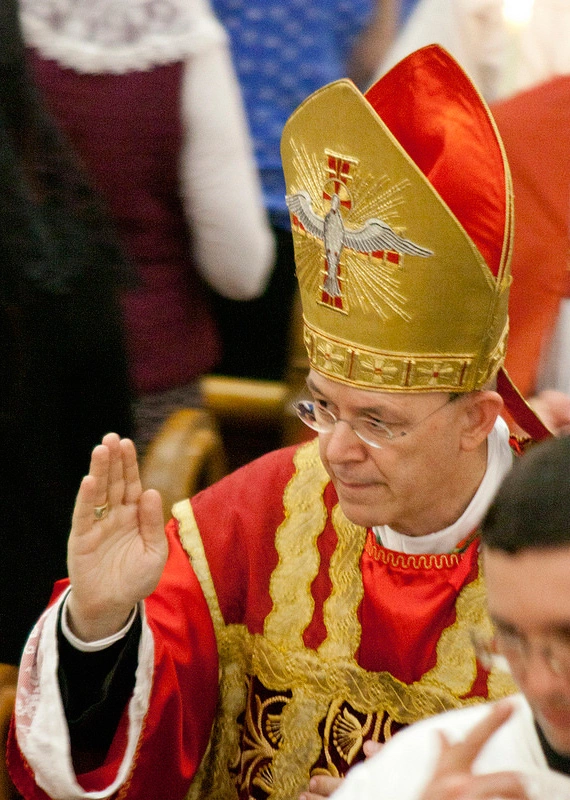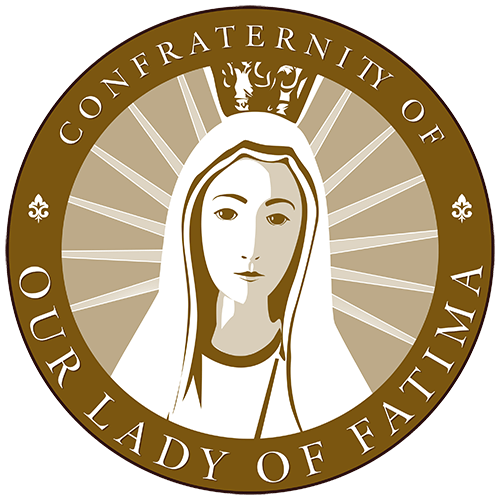Athanasius Schneider
Athanasius Schneider, O.R.C. (born Anton Schneider on 7 April 1961) is a Kazakhstani Roman Catholic bishop, the auxiliary bishop of Astana, Kazakhstan. He is a member of the Canons Regular of the Holy Cross of Coimbra.
Family and early life
Anton Schneider was born in Tokmok, Kirghiz SSR, in the Soviet Union. His parents were Black Sea Germans from Odessa in the Ukraine. After the Second World War they were sent by Stalin to a gulag in Krasnokamsk in the Ural Mountains. In Krasnokamsk, the family was closely involved with the underground church. Schneider’s mother, Maria, was one of several women who helped shelter the Blessed Oleksa Zaryckyj, a Ukrainian priest, who would later be imprisoned in the infamous Karlag (near Karaganda in Kazakhstan) by the Soviet regime for his ministry; he would eventually be martyred in 1963. The family traveled to the Kirghiz SSR after being released from the camps. Later, they left Central Asia for Estonia, where they lived in Valga. As a boy, Schneider and his three siblings would attend clandestine masses with their parents, often traveling sixty miles from the family’s home to Tartu, taking the first train in the morning under the cover of darkness and returning with the last train at night. Due to the great distance, infrequent visits by the clergy, and crackdowns by the Soviet authorities, they were only able to make the trip once a month. In 1973, shortly after making his first Holy Communion in secret, Schneider emigrated with his family to Rottweil in West Germany.

Training and priesthood
In 1982, Schneider joined the Canons Regular of the Holy Cross of Coimbra, a Roman Catholic religious order, in Austria. He was given religious name of Athanasius upon joining the order and was ordained a priest on 25 March 1990. In 1997 he obtained the doctoral degree in Theology and Patristic Sciences at the Patristic Institute “Augustinianum” in Rome. Starting in 1999, he taught Patristics at Mary, Mother of the Church Seminary in Karaganda. On 8 April he was appointed auxiliary bishop oft the Diocese of Karaganda in Kazakhstan. On 2 June 2006 he was consecrated a bishop at the Altar of the Chair of Saint Peter in the Vatican by Angelo Cardinal Sodano. In 2011 he was transferred to the position of auxiliary bishop in the Archdiocese of Astana. He is currently the General Secretary of the Conference of the Catholic Bishops of Kazakhstan.
Holy Communion
Schneider supports the posture of receiving Holy Communion on the tongue while kneeling in the liturgy. This is the theme of his book Dominus Est, published in Italian, and since translated into English, German, Estonian, Lithuanian, Polish, Hungarian and Chinese. The book contains a foreword written by Malcolm Cardinal Ranjith, then the Secretary of the Congregation for Divine Worship and the Discipline of the Sacraments, the current Archbishop of Colombo and Metropolitan head of the church in Sri Lanka.[citation needed] In the book, Schneider writes that receiving Holy Communion in this way had become standard practice in the Church by the 5th century, and that several synods of the Western Church from the 7th to the 9th centuries strongly chastised priests who refused to follow this tradition. In 2016, Pope Francis released the apostolic exhortation Amoris laetitia, which seemed to allow divorced and remarried persons to receive Holy Communion in singular cases. This was despite the traditional teaching of the Church that divorce and remarriage outside of it constitutes adultery, a mortal sin, therefore making one ineligible to do so. This was extremely controversial, and afterwards some bishops began to allow the divorced and remarried to receive the sacraments in singular cases. This development was strongly criticized by Schneider, who said perennial teaching on marriage and Communion is “more powerful and surer than the discordant voice and practice of admitting unrepentant adulterers to Holy Communion, even if this practice is promoted by a single Pope or the diocesan bishops. “On April 7, 2018, Schneider, along with conservative cardinals Raymond Leo Burke and Walter Brandmüller, participated in a conference rejecting the outline proposed by German bishops to allow divorced and civilly remarried Catholics to receive the Eucharist. Schneider spoke of the duty of popes to be “custodians” of authority.
Society of Saint Pius X
Schneider has been a major figure in attempts to reconcile the traditionalist Society of Saint Pius X (SSPX) with Rome. He has repeatedly met with members of the Society, including the Superior General Bishop Bernard Fellay, to discuss existing problems and to arrive at a solution. In August 2015 Schneider explained that the SSPX has still not the full canonical recognition of the Holy See and that the situation has to be resolved. Schneider expressed the opinion that many of the SSPX’s concerns regarding the texts of post-Vatican II documents and their interpretation are legitimate, but added that, “Unfortunately their criticism lacks sometimes the due respectful form.”
Clergy sex abuse
On August 25, 2018 Archbishop Carlo Maria Viganò, former apostolic nuncio to the United States, released an 11-page letter describing a series of warnings to the Vatican regarding sexual misconduct by Theodore McCarrick, who had been removed from active ministry on June 20, 2018 following allegations deemed credible of sexually abusing a minor and was later forced to resign from the cardinalate and was actually dismissed from the Clerical state on February 13, 2019. According to Viganò, Pope Benedict XVI placed secret restrictions on McCarrick, but Pope Francis removed these sanctions and made McCarrick “his trusted counselor.” The end of the letter called on Francis and all those responsible for the cover up to resign. The letter provoked diverse reactions. It was said to read “in part like a homophobic attack on Francis” filled with “unsubstantiated allegations and personal attacks,” with many speculating that Viganò’s conservative views, among other things, led him into a “declaration of war” against Francis. A number of bishops sharply criticized it, while others called for an investigation. Schneider came down on the side of those supporting the letter. He responded by saying that there was “no reasonable and plausible cause to doubt the truth content of the document.” He demanded “ruthlessness and transparency” in cleansing the Church of evils, particularly “homosexual cliques and networks” in the curia that he and some others have blamed for help causing the abuse epidemic. Schneider called on all “cardinals, bishops and priests to renounce any compromise and any flirt with the world.”
Source: partly Wikipedia
